Aquaponics Tech#6 PUMPS
A friend of mine @makinstuff has built his first aquaponics system and the subject came up about pump sizes.
If your new to aquaponics you may not think much about the pump you buy to run the system BUT sometimes all is not as straight forward as you would expect.
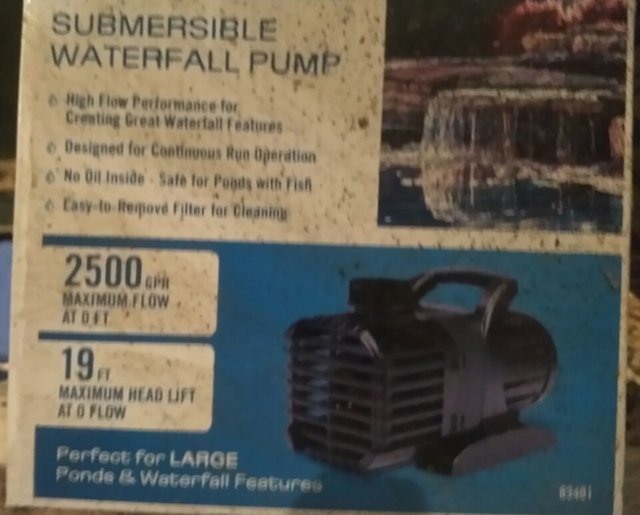
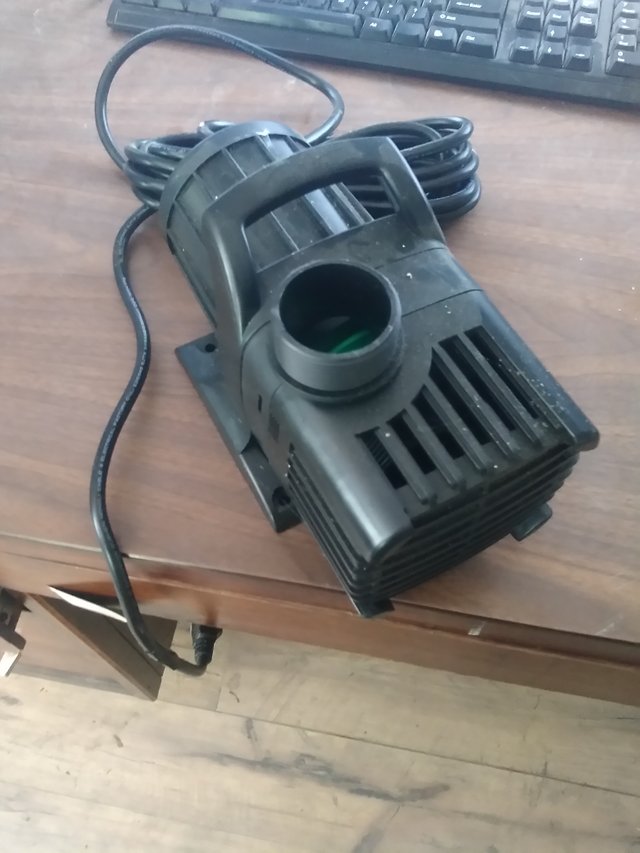
When you buy a pump be mindful of the head lift (height in feet the pump can raise the water), gallons per hour (gph), and pipe size.
This particular pump says 19 ft head lift and 2500 gph.
However this will NOT pump 2500 gallons of water per hour at 19 ft of lift.
What is not so obvious is that the rating on the box of 2500 gph is with a 2 inch pipe with zero head lift. For every foot the pump has to lift the water, the gph rating drops.
Look closely at the box it says, 2500gph at 0ft, and 0 flow at 19ft.
These pumps do not produce a lot of water pressure either, so reducing the pipe size will ALSO REDUCE the gph. Conventional wisdom is that reduction of pipe size increases pressure but the overall volume of water is close to the same. THIS IS NOT TRUE WITH THESE PUMPS.
My system has a 5 ft head lift with a 3/4" pipe.. I get approximately 380gph of water flow from this pump. With the same pump and 1-1/4" pipe I can get 600+ gph with a 5 ft head lift, and with a 2" pipe it may increase to 800 gph.
The thing to remember with these pumps is that the gph is rated with zero lift at the pipe size specified. Since no system is going to have zero head lift, you can safely assume that the gph rating will not apply AS STATED ON THE BOX.
Furthermore, the gph rate is not linear with the head lift. In other words you cant simply divide the gph by the head lift and get a flow rate for a specific rise. The gph decreases exponentially with increase in lift until you reach the maximum lift and flow drops to zero.
If your using a typical IBC tote for a fish tank then you will likely wind up having to have, what would at first glance appear to be, an over sized pump.
So how much water should you exchange?
For the hobby, or beginner level aquaponics it is fairly safe to say that you have to exchange the entire water volume of the fish tank at least once per hour.
If you go out and get a typical 600gph pump with a head lift of 10ft and your using a 1/2" return line, chances are your getting about 1/10th of the rated amount. So in a typical 330 gallon tote you would be exchanging the water roughly every 5-1/4 hours, instead of every hour.
This situation will leave your entire system lacking in the necessary water flow to be effective.
With this kind of exchange rate, depending on your fish density, you will likely wind up with low oxygen, and high ammonia. This is not an effective flow rate to remove the solids from the fish tank either.
Also when you install your pump, make sure to use a union near the pump so the pump can be removed for cleaning without cutting the pipe.
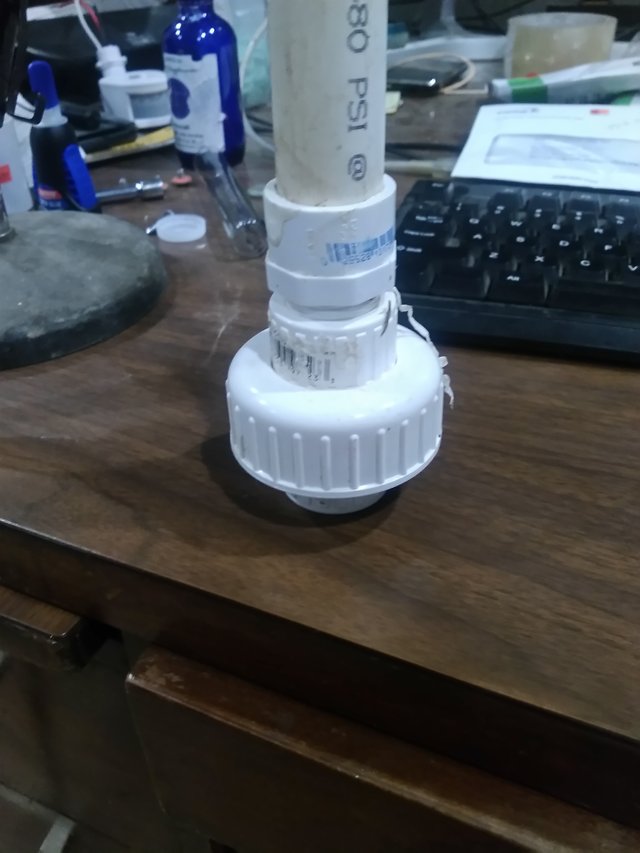
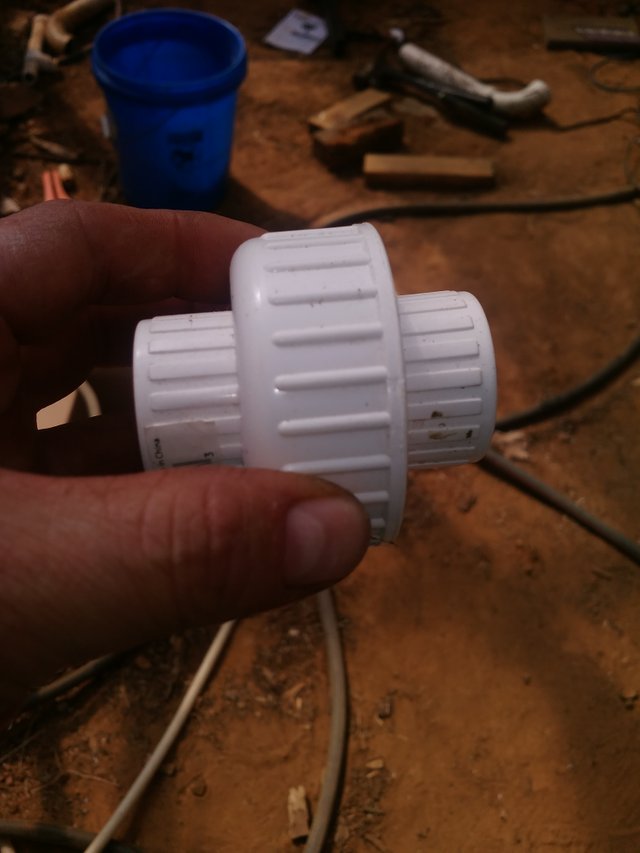
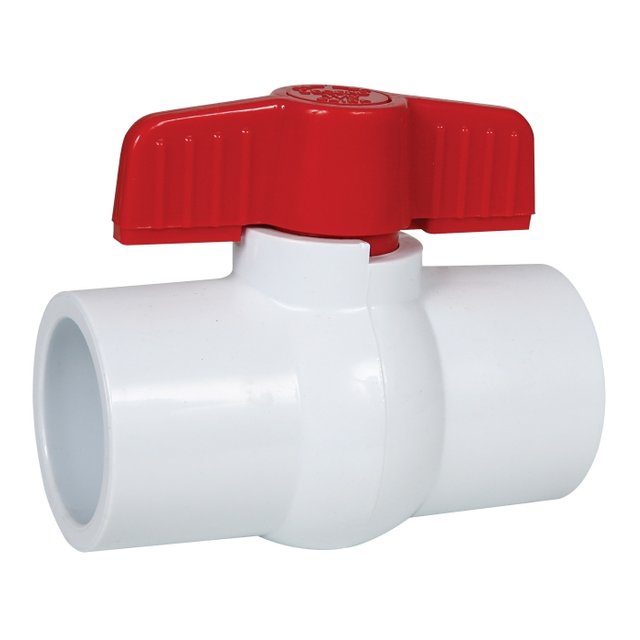
Also you will want to install a ball valve on the return pipe somewhere close to the fish tank so you can control the amount of water coming into the fish tank.
You can always reduce the flow of the water by using a combination of reduced pipe size and a ball valve. But you CAN NOT INCREASE THE WATER FLOW with an under sized pump.
Why do you think the dinosaurs went extinct?
I don't think it was from the wrong sized pump.
Great information sir! thanks for setting me straight on this. Still need to install the 1" diameter pipe.
Sweet post, lots of great information here. Thank you for sharing with us.
Sweet post, lots of great
Information here. Thank you
For sharing with us.
- gray00
I'm a bot. I detect haiku.
Excellent info for those newer to the game than you are, great post.
The pump pictured is from Harbor Freight right? I have actually had quite good luck with those. If they are working in clean water (post-filter) they last a long time, especially considering their low price.
If I may add to your final thought about reducing flow, its good practice to add a T between the pump and the ball valve, with the ball valve line returning to the pump tank. When you want to decrease flow, you open up the ball valve and let water bypass back into the sump. Saves your pump some strain from back pressure, and gives you some free oxygenation back in the sump to boot!
I just heard from @makinstuff about your blog, looks like you are up to some cool stuff. I'll be checking out your work for sure, I'm looking to learn as much as I can about this.
U still around bud?
Posted using Partiko Android
Congratulations @robbieolson! You received a personal award!
You can view your badges on your Steem Board and compare to others on the Steem Ranking
Vote for @Steemitboard as a witness to get one more award and increased upvotes!